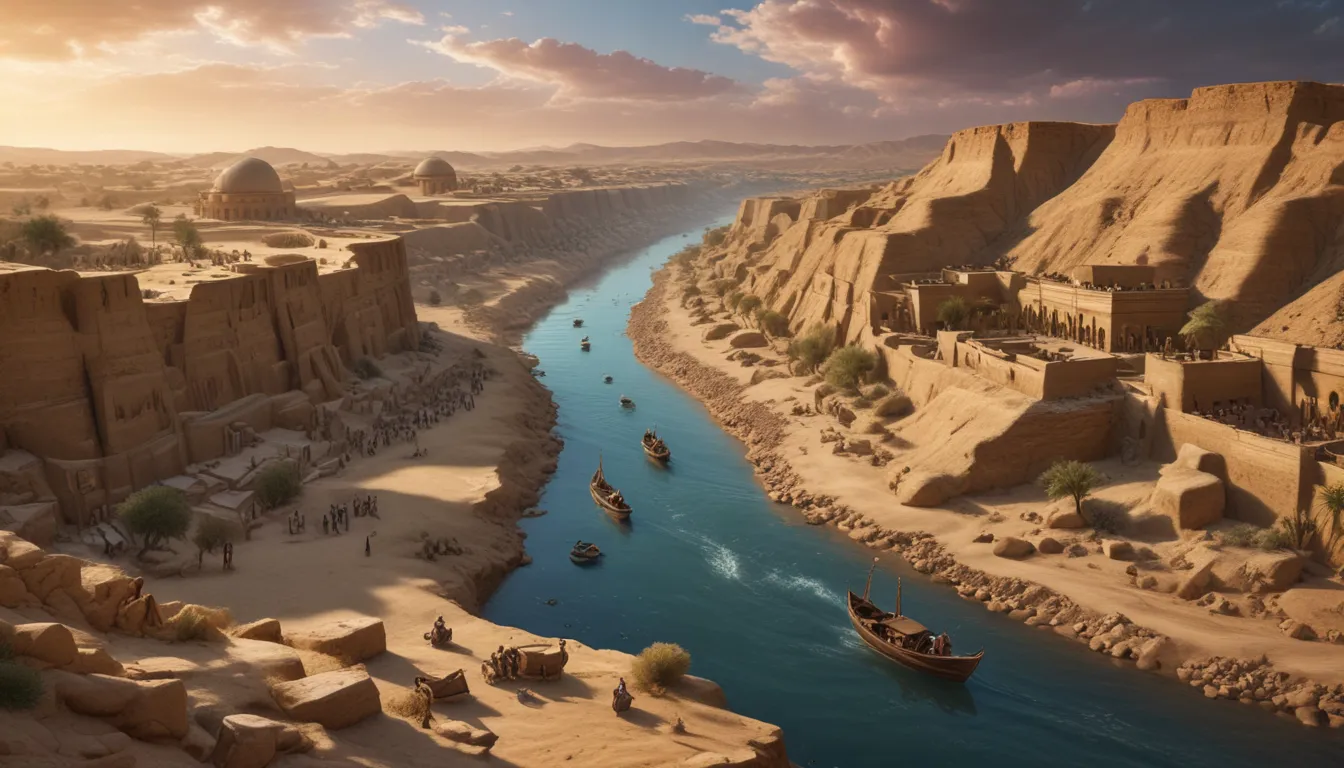The images in our articles may not match the content exactly. They are used to grab your attention, not to show the exact details in the text. The images complement the text but do not replace it.
Welcome to an exploration of the magnificent realm of Mesopotamia, the birthplace of remarkable innovations that shaped the course of human history. From the invention of the wheel to the establishment of kingship and law, Mesopotamia stands as a beacon of civilization’s earliest achievements. Join us on a fascinating journey through 40 enlightening Mesopotamia facts that illuminate our shared heritage and roots.
The Geographic Marvel of Mesopotamia
Mesopotamia’s geographical diversity astounds with its contrasting landscapes, offering a glimpse into the ancient civilizations that thrived in this historic region:
- Northern Mesopotamia: An arid plateau stretching 400 km in length characterizes this region, providing a stark contrast to its southern counterpart.
- Southern Mesopotamia: Defined by vast wetlands spanning 15,000 km², this area showcases a unique ecosystem that supported early human settlements.
- Silt Accumulation: Over the past 6000 years, silt deposits have extended the coast of Ancient Mesopotamia by 210 km, a testament to the dynamic nature of the region.
- Euphrates River Cliffs: Once lined with limestone cliffs stretching up to 64 km, the banks of the Euphrates River served as natural landmarks for ancient inhabitants.
Unveiling the Historical Tapestry of Mesopotamia
Delve into the rich tapestry of Mesopotamian history, where civilizations rose and fell, leaving an indelible mark on the annals of time:
- Ancient Settlements: Human presence in Mesopotamia dates back to the New Stone Age, showcasing the enduring legacy of early settlers in the region.
- Sumerian Civilization: In the 4th millennium BC, the Sumerians flourished in Southern Mesopotamia, laying the groundwork for urban development and cultural sophistication.
- City Building: The Sumerians pioneered the construction of humanity’s first cities during the 3rd millennium BC, heralding a new era of societal organization and urban planning.
- Rival Empires: Throughout history, empires like Babylonia and Assyria vied for dominance in Mesopotamia and the wider Middle East, shaping geopolitical dynamics for centuries.
- Conquests and Conquerors: From the Persians in the 6th century BC to Alexander the Great in the 3rd century BC, Mesopotamia witnessed a succession of conquerors and rulers shaping its destiny.
- Cultural Shifts: The ebb and flow of power saw various empires like the Seleucids, Persians, and Romans exert influence over Mesopotamia, each leaving a unique imprint on its cultural fabric.
- Arab Conquest: In the 6th century AD, the Arab conquest of Mesopotamia marked a pivotal moment in the region’s history, ushering in a new era under Arab rule.
The Enigmatic Realm of Mesopotamian Kingship
Explore the fascinating world of Mesopotamian kingship, where divine lineage and earthly responsibilities intertwined to create a unique system of governance:
- Divine Descent: Mesopotamian kings were revered as descendants of the gods, embodying divine authority and power in the eyes of their subjects.
- Royal Titles: Kings bore titles such as ‘shepherd’, symbolizing their duty to guide and protect their people, alongside grandiose epithets like ‘great king’ and ‘king of the universe’.
- Territorial Extent: Ancient Mesopotamia encompassed not only present-day Iraq but also parts of modern Syria, Turkey, Iran, and Kuwait, showcasing its expansive influence in the ancient world.
As we embark on this enlightening journey through the corridors of Mesopotamian history, let us revel in the wonders of the Cradle of Civilization and honor the enduring legacy of a region that continues to inspire and captivate us today. Discover the allure of Mesopotamia’s past and let its stories weave a tapestry of knowledge and wonder that enriches our understanding of the world’s earliest civilizations.






